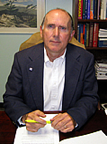Latest News
- 08.03.17 - Looking for a comprehensive resource on cervical cancer? CDC’s fact ... read more »
- 07.18.17 - Looking for a comprehensive resource on cervical cancer? CDC’s fact ... read more »
- 07.08.17 - The Harvard T.H. Chan School of Public Health published new ... read more »
Read more news stories »
Kentucky
Kentucky has among the highest incidence and mortality rates of cervical cancer in the country, largely affecting rural, white residents. Kentucky is also distinctive in that there is a younger median age of cervical cancer development compared to most other states. The Cervical Cancer-Free Initiative – Kentucky (CCFI-Kentucky), composed of researchers at the University of Kentucky College of Public Health and the Kentucky Department of Public Health, will host two state summits cervical cancer. By holding summits in both the Eastern and Western sections of the state, the group hopes to better involve local, community-based stakeholders in their initiative. The group has developed an educational video on HPV vaccination and Pap screening that is currently being assessed for efficacy. Future plans include vaccination interventions, either with a school-based focus or targeting young adults to obtain catch-up vaccinations. CCFI-Kentucky also plans a call-for-proposals to fund novel, inspired, state-based projects focusing on policy or education that include a concrete plan for evaluation.
For more information on CCFKY contact Benita Decker at Benita.decker@ky.gov, Dr. Baretta Casey at bcase2@uky.edu. Additionally, you may visit the CCFKY website at http://www.cervicalcancerfreeky.org.

|
Baretta R. Casey, MD, MPHProfessor, University of Kentucky College of Public HealthDr. Casey serves as the principal investigator for the CCFKY Initiative and provides leadership and support for a number of health-related grants and service projects to improve health, education, the environment and quality of life in rural Appalachia. She is a Professor in the Department of Family and Community Medicine in the College of Medicine and in the Department of Health Behaviors in the College of Public Health both at the University of Kentucky. Dr. Casey has worked on cervical cancer issues for rural eastern Kentucky Appalachians for 16 years. |

|
Richard A. Crosby, PhDDDI Endowed Professor and Chair, Department of Health BehaviorRichard A. Crosby, PhD is an Endowed Professor and Chair of the Department of Health Behavior in the College of Public Health at the University of Kentucky. He was previously an assistant professor at the Rollins School of Public Health and served as a Fellow of the Association of Teachers for Preventive Medicine at CDC. He is the PI of the Rural Cancer Prevention Center, funded by CDC – the primary mission of that center is to prevent cervical cancer among rural women who are medically underserved. He has published more than 200 journal articles addressing empirical questions – most of which are related to safer sex practices among persons at high-risk of acquiring sexually transmitted infections and he currently is funded by NIH and CDC to conduct investigations spanning a wide range of issues within sexual health. Dr. Crosby is also an author of a textbook devoted to research methods (Research Methods for Health Promotion) and co-editor of textbook devoted to the promotion of adolescent health (Adolescent Health: Understanding and Preventing Risk) as well as co-editor of a textbook devoted to behavioral theory (Emerging Theories in Health Promotion Practice and Research). Most importantly, as a dedicated teacher, Dr. Crosby has shared in the training of countless numbers of students earning their Masters in Public Health degree. |

|
Robin C. Vanderpool, DrPHAssistant Professor, Department of Health BehaviorDr. Vanderpool provides strategic leadership for CCFKY and advises on both screening and HPV vaccination activities. She is an Assistant Professor in the Department of Health Behavior at the University of Kentucky College of Public Health. Dr. Vanderpool has been involved in cancer control research and practice for over a decade at federal and state levels. Her research interests include cancer disparities among rural and Appalachian communities, cancer information-seeking behaviors among minority and medically underserved populations, and cancer-related health literacy. |

|
Tom CollinsAssociate Director of the Rural Cancer Prevention CenterAs Associate Director of the University of Kentucky’s Rural Cancer Prevention Center, Tom Collins shares the responsibility of engaging local communities in research activities designed to promote cancer prevention. The center’s core research project of reducing cervical cancer through the promotion of HPV vaccination is the primary focus of his work. Mr. Collins’ former work with the Kentucky Department for Public Health in the field of HIV and STDs provides a deep history of collaboration with local health departments, and community based organizations across KY. |

|
Connie White, MD, MS, FACOGPrevious Director of the Division of Women\'s Health, Department for Public Health, and the Kentucky Cabinet for Health & Family ServicesConnie Gayle White, MD, MS, FACOG served as the Director of the Division of Women’s Health, Department for Public Health, Kentucky Cabinet for Health & Family Services from March 2009 until August 2010. Among Dr. White’s responsibilities were overseeing the Kentucky Breast and Cervical Cancer Screening Program as well as the Title X Program that provides contraceptive choices for low income women in all 120 Kentucky counties. She also expanded the Adolescent Health Initiative which focuses on the prevention of teen pregnancy in Kentucky. Dr. White joined the Division of Women’s Health after practicing obstetrics/gynecology in Frankfort, Kentucky for over 20 years. During her years of clinical practice, Dr. White was associated with the Franklin County Health Department, helping provide primary and preventive health care to women in need. Dr. White provides a practical clinical perspective to the prevention of cervical cancer by melding her years of patient care experience with her work in Kentucky’s public health system. |

|
Jennifer Redmond, DrPHPROGRAM DIRECTOR, KENTUCKY CANCER CONSORTIUMDr. Redmond is a co-investigator for the CCFKY initiative and has been involved in public health practice since 2003. Currently, she serves as Program Director for the Kentucky Cancer Consortium, which is Kentucky’s state comprehensive cancer control coalition. In this role, Dr. Redmond facilitates large and small groups focused on planning, revising, implementing and evaluating the Kentucky Cancer Action Plan, which includes specific goals objectives and strategies related to HPV vaccination and cervical cancer screening. She also provides oversight for multi-functional program activities involving a broad and complex range of public health programs across the continuum of cancer at state and multi-regional levels. |

|
Elisia L. Cohen, PhDASSISTANT PROFESSOR OF COMMUNICATION; DIRECTOR, UK COMMUNICATION RESEARCH COLLABORATIVEDr. Cohen directs the CCFKY’s strategic communication activities and advises on the development of the initiative’s media-based interventions to improve cervical cancer screening, HPV vaccination and treatment. She is an Assistant Professor at University of Kentucky College of Communication and Information and is the Director of the UK Communication Research Collaborative. Dr. Cohen has a Ph.D. from the Annenberg School for Communication at the University of Southern California. Dr. Cohen has been involved in cancer communication and community-based research for over a decade. For the past seven years, Dr. Cohen has served as an investigator with the NCI-funded St. Louis Center for Excellence in Cancer Communication Research. Her research interests include communication strategies to reduce cancer disparities among African American, rural and Appalachian communities, cancer information-seeking behaviors among minority and medically underserved populations, and cancer-related health literacy. |

|
Ramona Stone, PhDASSOCIATE PROFESSOR, DEPARTMENT OF HEALTH BEHAVIORAs a sociologist, with over 12 years of experience in program evaluation and a strong background in mixed research methods and data analyses, Dr. Stone leads the evaluation efforts for CCFKY. Dr. Stone has been involved in several state level program evaluations, such as Kentucky Welfare Reform, the Community Collaboration for Children, Kentucky’s Public Advocacy’s Social Worker Program, and Kentucky Biomedical Research Infrastructure, and in the evaluation of several other smaller programs that provided a variety of human and social services to different segments of vulnerable populations in urban and rural areas across Kentucky. |